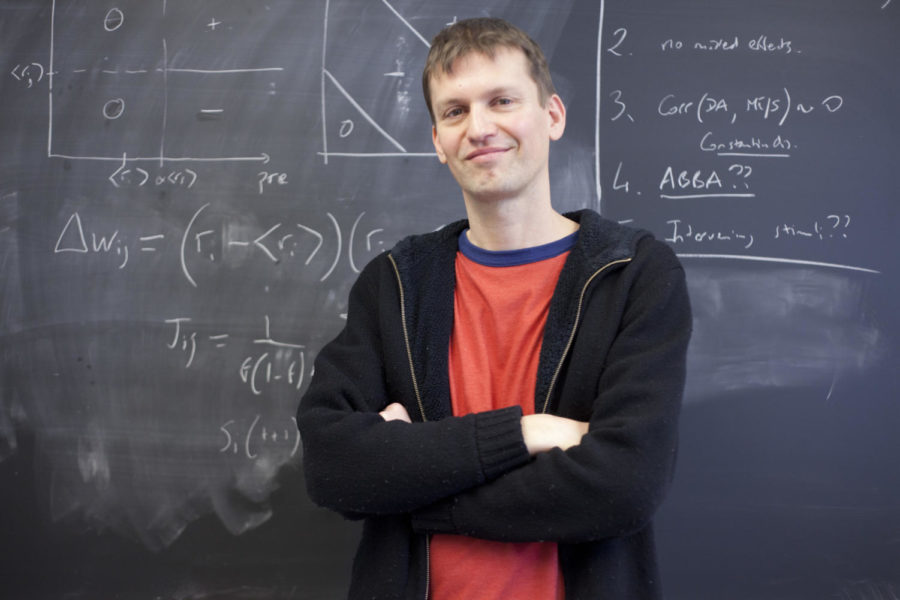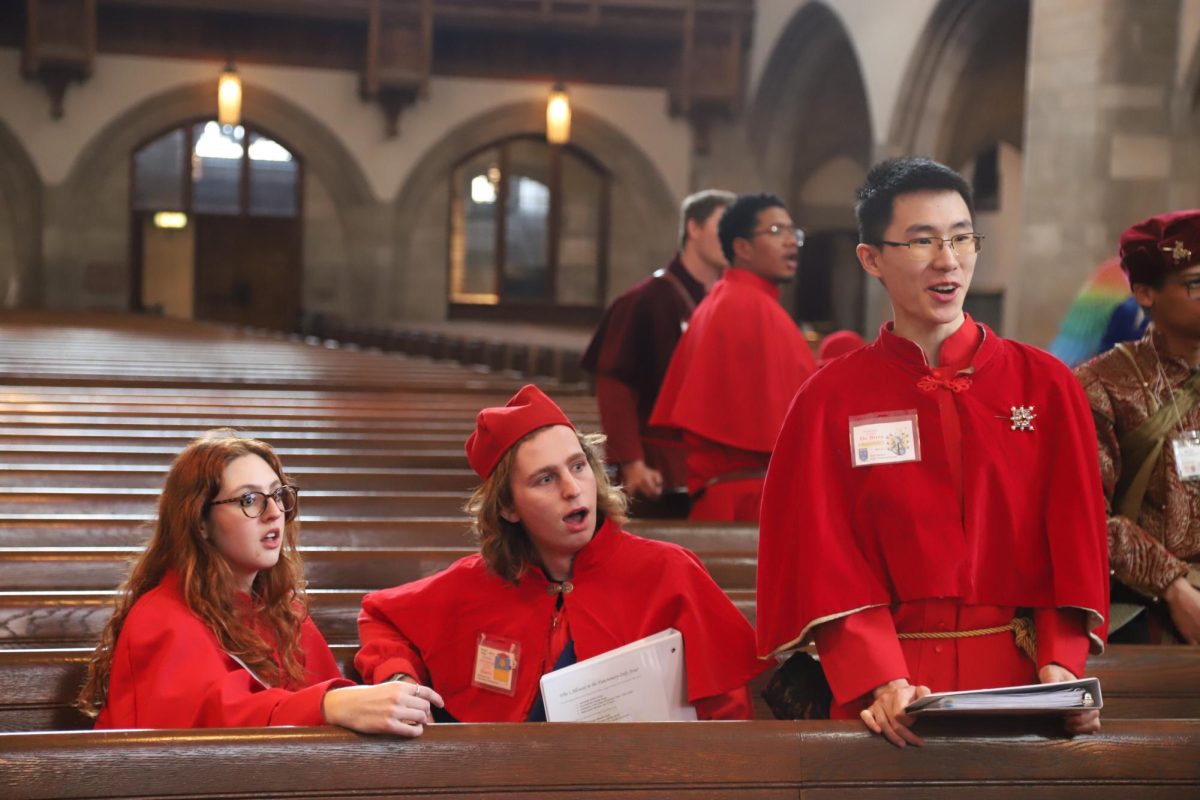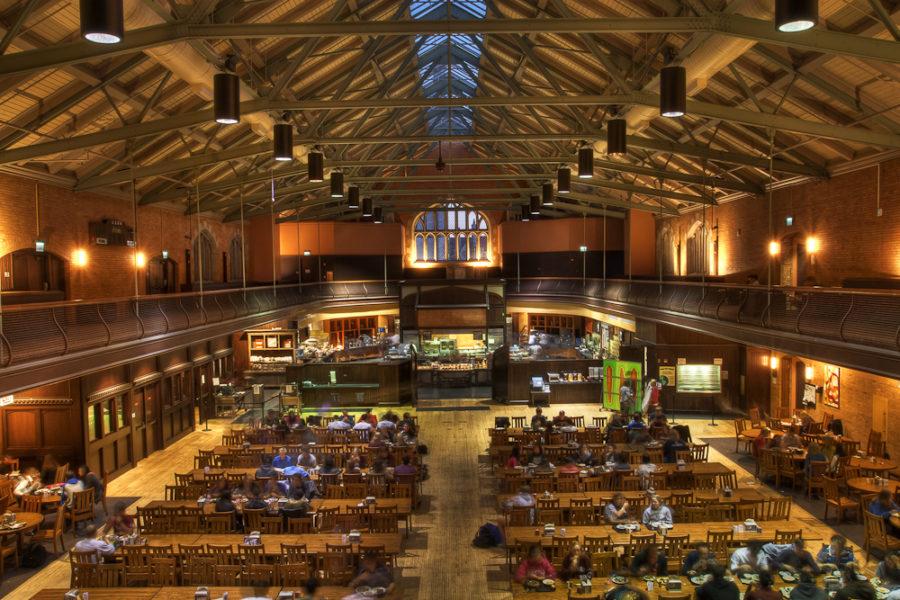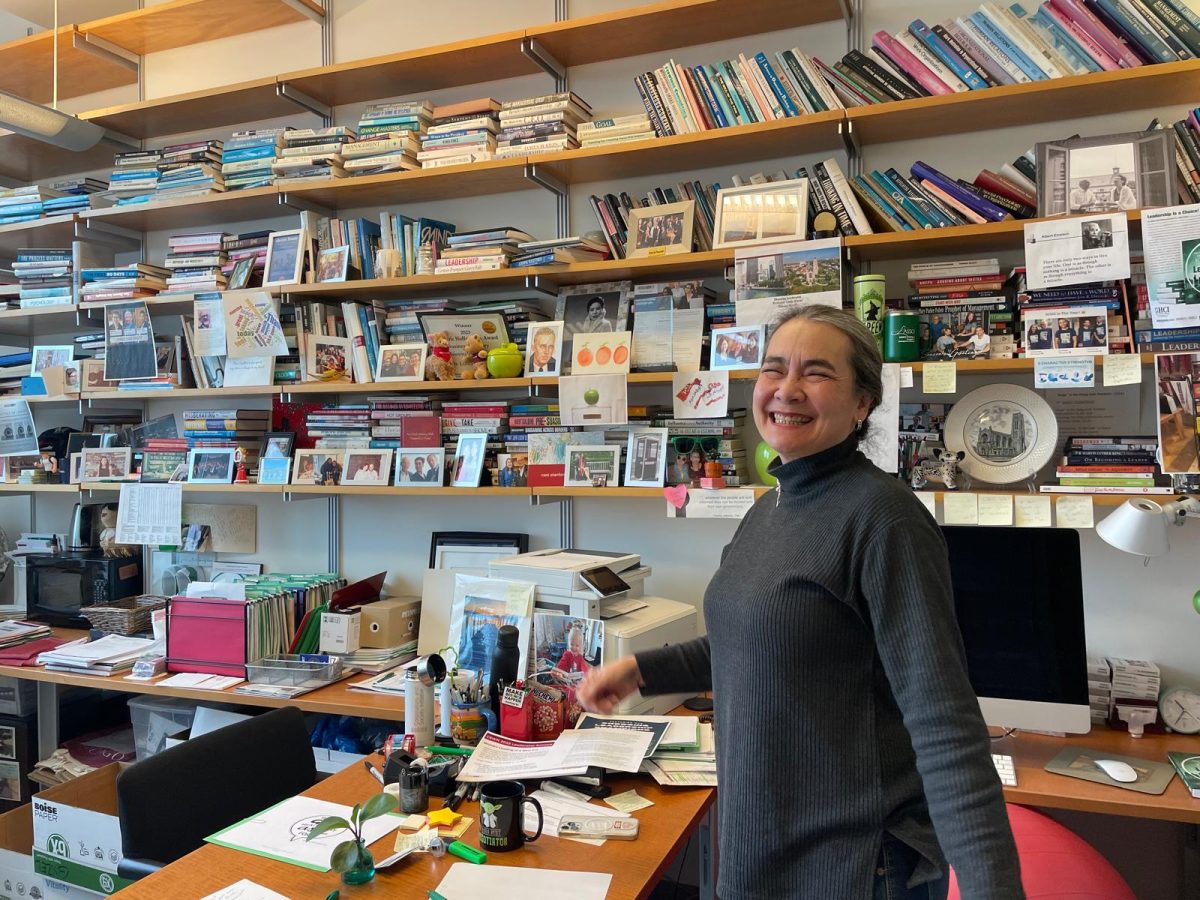GC: Describe your work in three sentences or less.
NB: My field is called computational neuroscience, and the idea is basically to use quantitative tools from applied mathematics, statistics, and physics to try to understand how the brain works. There are many different branches of computational neuroscience—some people work on mathematical models of single neurons or synapses, the basic building blocks of the brain, to try to understand how they work. Other people work at the larger level to understand the dynamics of networks of neurons, and my research is mostly devoted to these particular topics—the mechanisms of learning and memory.
GC: Is it a challenge to deal with such a multidisciplinary topic?
NB: That’s both what makes it difficult, because you have to master many different fields, but it also makes it really fascinating because you have all these disciplines—biology, psychology, statistics, mathematics—that come together. Another major reason why I was attracted to this field is that we understand so little—we probably still won’t understand much in 10 or 15 years.
GC: That doesn’t sound too optimistic.
NB: Well, the field is progressing very quickly now, especially because there is experimental progress. We can do experiments now that were unthinkable 10 years ago, and on the theoretical side we have progress of the same speed. A big challenge though is that we are getting all of this data from these experiments, and it’s a challenge to analyze it all. That’s where statistics becomes a major player—how do we make sense of this huge amount of data?
GC: President Obama recently announced that he plans to start a new multibillion-dollar initiative to map the human brain, on a scale similar to the human genome project. Do you think you may be involved in that?
NB: Yes, I read that. My understanding is that the basic idea is to push towards any techniques that will allow us to monitor the activity of the brain; it’s really trying to develop new experimental techniques. I won’t be involved directly—I’m not an experimentalist myself—but of course, my research will have a huge impact because it will allow us to observe the brain on a much smaller scale.
GC: And related to what you said earlier, I read that even if these experiments are conducted, there’s the question if its even possible to store all the collected data.
NB: Exactly. That’s another big question, and it’s still unsolved. It’s an incredible amount of data.
GC: You grew up and did all your studies in France. Do you still keep in touch with researchers there?
NB: I actually had a group in Paris and some of them moved with me—two graduate students and one postdoc moved with me and are now in the neurobiology department. But I still have collaborations in France and have Skype meetings with researchers there.
GC: How do you like Chicago so far?
NB: It’s cold now, but I was expecting worse! I like this kind of weather—hot summers and cold winters—and at least here it is always sunny. In Paris it is gray all the time, and rainy.
GC: You got your degree in physics—how did you end up in computational neuroscience?
NB: When I started my Ph.D., by chance I followed a course on neural network theory—at that time there was an explosion of interest in neuroscience because there was the idea that you could use statistical methods to study networks. So neurons are just binary units, they can be on or off, and are connected together in a very simple fashion—but this very simple system shows highly nontrivial behavior and complex dynamics. That was the topic of my Ph.D. Then it was a gradual evolution from physics to neuroscience—during my postdoc I started to collaborate with experimentalists.
GC: What role do people in the humanities have in the study of the brain?
NB: Especially for philosophers there are a lot of ethical questions, like our ability to increasingly be able to manipulate the brain. For example, there’s this thing called brain-machine interface—if you have someone who’s paralyzed, and you’d like to give them an artificial arm, you want to connect the arm to the motor cortex, and somebody can control the signals of his brain. And it’s already working—well, at least in monkeys. They can grasp something and bring it to their mouth. Also, if we’re eventually able to someday observe the brain of someone else—read their thoughts—there are questions of what we should and should not be able to do with these technologies.
See the full interview feature here.









